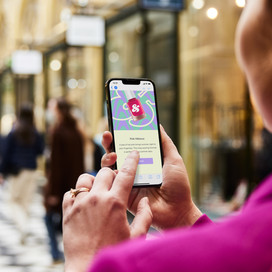Table of contents
When developing your marketing strategy, one of the most important decisions you will need to make is which marketing channels make sense to reach and engage the right audience for your business to grow or retain customers.
What is a marketing channel?
A marketing channel is any method or platform that’s used to market a product or service. Today, there’s an enormous amount of choice when it comes to choosing marketing channels to promote your brand.
A solid marketing strategy will have an omnichannel focus, providing compelling and consistent messaging across traditional and digital marketing channels. The right marketing channels for your business will be influenced by your sector, product, target audience, budget and more.
Read on for insight into the nine most effective marketing channels for small businesses in 2021.
1. Website
In 2021, a business website is an absolute must-have, regardless of your business’s size or sector. If you don’t sell products or services directly online, you don’t need an ecommerce store – but you do need a website that gives you a credible online presence and sends the right message about your brand.
Most people hop straight online to find more information about a business or its products – and what they see will influence their purchase decision and shape their expectations of everything from your product’s quality to its pricing. Whether potential customers are searching for your business by name or looking more generally, you want your website to be on the first page of the search results – investing in search engine optimisation (SEO) can really boost your ranking.
2. Video
YouTube is the world’s second-largest search engine, providing more than 1 billion hours of video to users every day. Video has become an extremely popular small business marketing channel over the past few years, partly because videos can be repurposed and used across many channels – from embedded videos on your website to email and social media marketing. Video is a versatile digital marketing channel that can be used to engage with customers, build brand awareness, introduce products and services, provide instructions and more.
3. Social media
Most Australians spend almost two hours each day on social media and WhatsApp. “Australians social media stats”). It’s a ubiquitous marketing channel that lets brands engage with existing customers and reach new ones. Social media marketing might include text, images, live and pre-recorded videos, and other marketing assets you’ve created. Your social platforms can be used for promotion, building engagement, customer service and more.
Good social media marketing will be shareable across several social platforms, including Facebook, Instagram, Pinterest and Snapchat. Create a calendar for your brand to ensure you’re providing a consistent flow of content across all platforms. If you’re not sure where to start with social media marketing, our blog, ‘Social media marketing for businesses’, provides some helpful tips.
4. Paid search (search engine marketing)
Paid search, also known as search engine marketing (SEM) or pay-per-click (PPC) advertising, can help build awareness and generate leads for your business. When you run a PPC campaign, your ads will appear above the organic search results for the search terms you’ve nominated.
Paid search is an excellent option for businesses with new websites that won’t initially rank well organically. You can strengthen your PPC campaign by running a remarketing campaign that targets people who’ve visited your website wherever they are online.
5. Email marketing
Email marketing is a powerful and low-cost way to engage with both existing and potential customers who’ve shown interest in your product, service, website or brand. Australia enjoys some of the strongest email marketing returns globally, with an average open rate above 20% and a click-through rate of 3.1%.
Email marketing gives you complete control over the content your subscribers get, and when and how often they receive marketing messages. If you’re using email as a marketing channel, look for opportunities to segment your distribution list and always personalise your campaigns.
6. Display ads
Display ads let you use images, audio and video to communicate your marketing messages. Display ads are shown on websites, email platforms, social media and other digital marketing channels and can be static, animated or interactive. They’re a popular choice in remarketing campaigns.
7. Blogs
Blogs have become a powerful digital marketing channel. While blogging is relatively labour-intensive, it’s an effective way to build an audience, market your brand and grow your business. Blogging is a great way to establish your business as a go-to brand in the markets you serve, and posting regular and well-researched blogs to your website will give your SEO a boost.
You can also offer to write articles for other blogs that are popular with your audience, with a link to your website. For example, if you sell organic kids snacks, you might offer to write a blog for Kidspot, which puts your brand in front of their readers.
8. Local marketing
Local marketing is exactly as it sounds – marketing your business to the local community. This type of marketing is usually used by small businesses such as local restaurants, retail stores and service providers.
Local marketing could involve a low-tech letterbox drop or a poster on a community noticeboard, or you might provide sponsorship to a local school, sports team or event. It’s a great way to build brand awareness in your local area.
9. Influencer marketing
Influencer marketing is big business in the social media era. Once the domain of celebrities, today, anyone with a large social media following can call themselves an influencer.
When you work with an influencer to promote your business, they’ll agree to mention or promote your product or service to their social followers in exchange for a fee. Influencer marketing campaigns often include giveaways and competitions, product reviews and collaborations. Ensure any influencers you partner with fit your brand’s image and values, and are people who would genuinely use your product or service.
![]()











